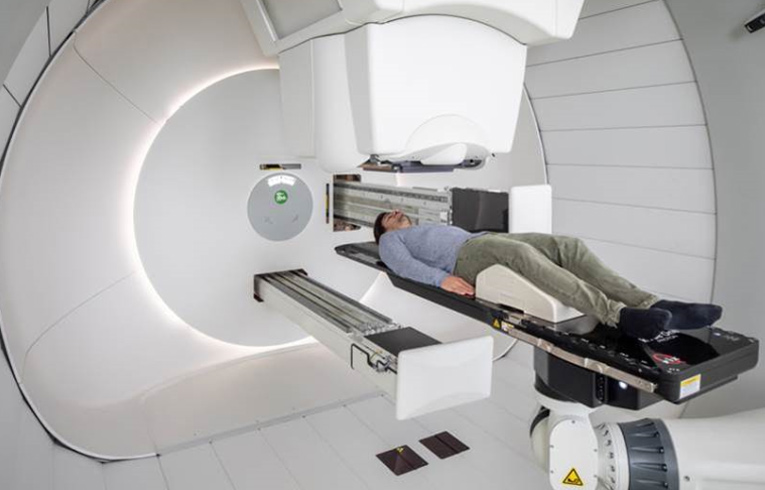Proton beam therapy (PBT) is a type of radiotherapy that uses a beam of high energy protons, which are small parts of atoms, rather than high energy x-rays (called “photons”) to treat specific types of cancer.
Proton beam therapy enables a dose of high energy protons to be precisely targeted at a tumour, reducing the damage to surrounding healthy tissues and vital organs which is an advantage in certain groups of patients or where the cancer is close to a critical part of the body such as the spinal cord.
Two NHS centres will provide high energy proton beam therapy in the UK, The Christie NHS Foundation Trust (Manchester) and University College London Hospital (UCLH) NHS Foundation Trust.
The Christie NHS proton beam therapy centre opened in Autumn 2018, and the first patient was treated in December 2018.
The second NHS centre is currently being built at University College London Hospitals. UCLH will gradually ramp up PBT activity during 2021 , when complete the two centres will each treat up to 750 patients every year.
Currently the UK has one proton beam therapy facility, at Clatterbridge Cancer Centre, but it’s a ‘low-energy’ machine, only suitable for treating people with rare eye cancers.
